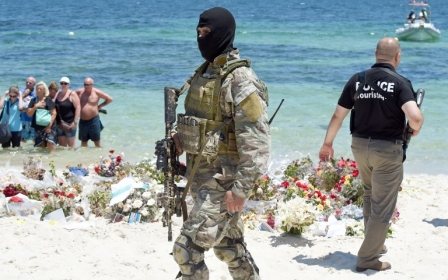Tunisians react to UK warning against all but essential travel to their country

Tunisians have given mixed reactions to the British Foreign and Commonwealth Office’s announcement warning Britons “against all but essential travel” to their country.
The change in travel advice was made two weeks after a deadly attack on a resort in the popular holiday hotspot of Sousse, where 38 tourists were gunned down by a man affiliated to the Islamic State group.
Thirty of the tourists were British, making it the worst attack on Britons since the 2005 London bombings.
The UK’s Foreign Secretary Philip Hammond justified his decision by saying that “a further terrorist attack is highly likely”, which led to the Tunisian Prime Minister Habib Essid saying that he would be making a telephone call to his British counterpart David Cameron on Friday to discuss the matter.
Nabil Ammar, the Tunisian ambassador to the UK, denounced the change in travel advice, saying that this is “what the terrorists want”.
Ammar also pointed out the impact this would have on Tunisia’s tourism industry, which the country heavily relies on.
“By damaging the tourism, by having foreigners leaving the country, they damage the whole sector and put so many people out of work and on the streets,” Ammar told BBC Newsnight. “Hotels have to close and this is an important industry.”
“One of the sources of terrorism is lack of hope,” he added. “It is not the only motor of it but it is one of the very important origins.”
Middle East Eye spoke to Tunisians to get their responses on the subject.
Radwan Masmoudi, the president of the Centre for the Study of Islam and Democracy:
"Tunisians were shocked and disappointed in the reaction of the British government urging their citizens to leave Tunisia. Terrorist attacks can happen and have happened anywhere in the world, including London, Paris, New York, and Boston. No one has ever called for people to stop going to these cities because the risk of [further] terrorist attacks. That would be precisely what the terrorists want. The reaction should be exactly the opposite to show the terrorists that we are not afraid of them, and that they will be defeated in Tunisia and elsewhere."
Maryam Mnaouar, head of al-Hizb al-Tounisi (the Tunisian Party):
"Our government caused this kind of reaction by being incompetent and declaring a state of emergency."
Mongi Dhaouadi, former Executive Director of Council on American–Islamic Relations in Connecticut:
"I think it is unfortunate that the British government give in and allow terrorists to "declare" victory by scaring people away from visiting Tunisia. As a Tunisian, I am very disappointed and was expecting more from a friendly government whose cities suffered from terror attacks in the past. At this time, we expect our friends to stand in solidarity with Tunisia and show resolve in the face of this ugly terror threat."
Chedly Ben Ibrahim, a Tunisian photojournalist:
"Some friends have criticised this decision as they believe that terrorism affects every country and these countries have not advised their citizens to leave Tunisia.
"I think the British government saw that security in Tunisia is fragile and [they] must do something to protect the Britons residing or living in Tunisia. We must remember that the number of Britons killed during the terrorist attack in Sousse was very high. If the British government does nothing [for its citizens] regarding the fragile security situation in Tunisia, they will be violently criticised, [especially] if other Britons become victims of a probable terrorist attack.
"I also believe that the investigations conducted by Scotland Yard in Tunisia have affected the British government to make that decision.
"Some of my friends think that this decision will have no influence on tourism because it is already affected by the last attack on Sousse. The Tunisian minister of tourism declared that one million flights were cancelled after the terrorist attack in Sousse."
Stay informed with MEE's newsletters
Sign up to get the latest alerts, insights and analysis, starting with Turkey Unpacked
Middle East Eye delivers independent and unrivalled coverage and analysis of the Middle East, North Africa and beyond. To learn more about republishing this content and the associated fees, please fill out this form. More about MEE can be found here.




